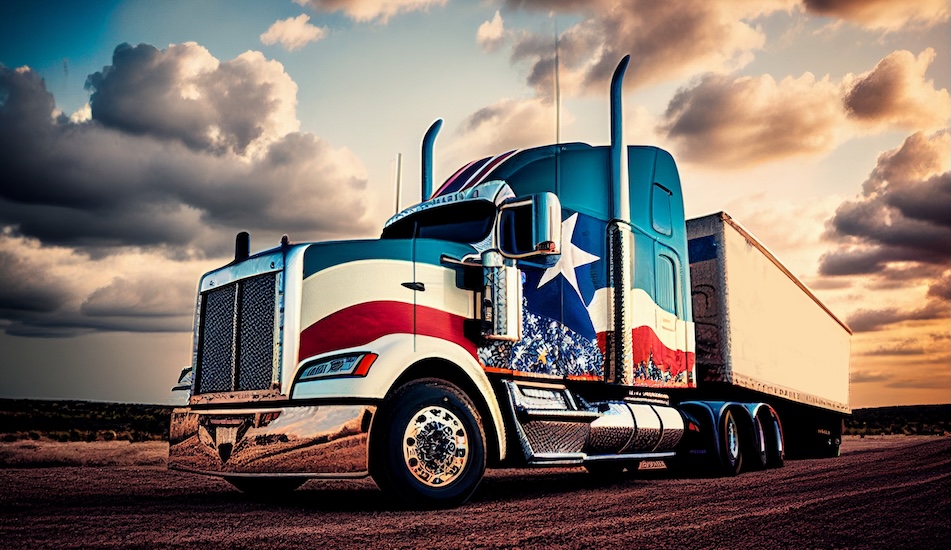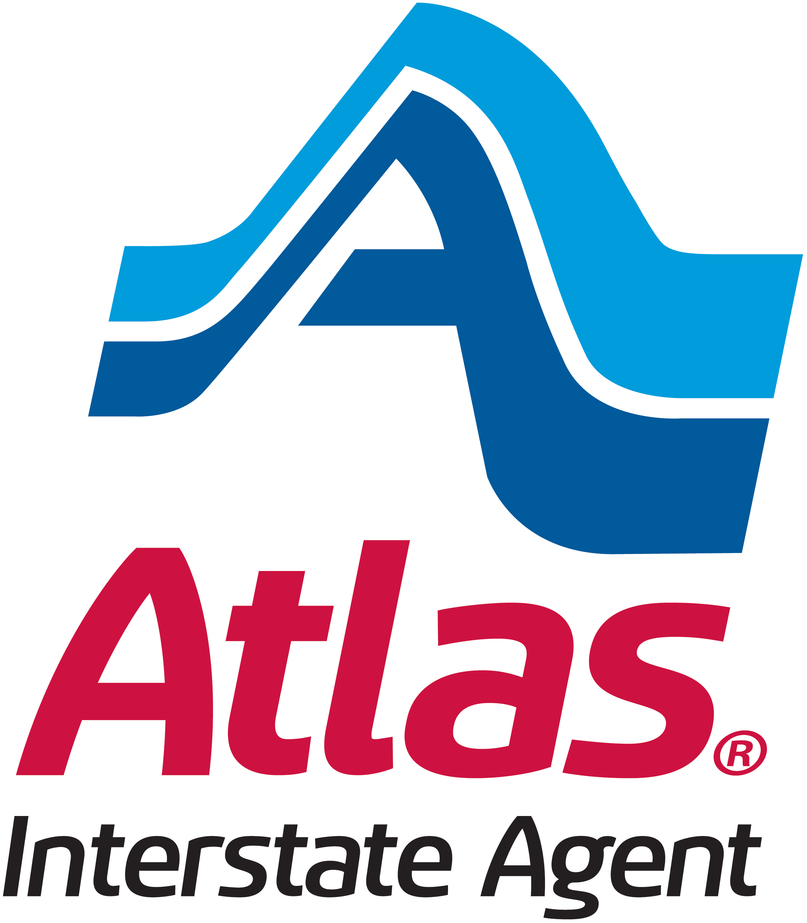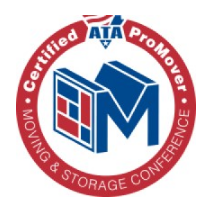Moving Truck Rental Costs: How to Avoid Hidden Fees

Moving to a new home is an exciting milestone, but the costs of renting a moving truck can quickly add up, causing stress and strain on your budget. Whether you’re relocating locally or planning a long-distance move, it’s essential to understand the expenses involved and explore ways to save money without compromising the quality of your move.
“Let’s break down the average costs of renting a moving truck, the factors that influence rental prices, and additional expenses to keep in mind.” By comparing popular rental companies and their pricing structures, you’ll gain valuable insights to make an informed decision that aligns with your specific needs and budget.
Proven strategies and thorough planning techniques can help you take control of your relocation costs and ensure a smooth, budget-friendly move. Implementing smart approaches and understanding the factors that influence moving truck rental prices will enable you to minimize expenses without sacrificing the quality of your moving experience.
As you prepare for this significant milestone, equipping yourself with the right knowledge and tools is crucial to making your move as cost-effective and stress-free as possible. By exploring the details of moving truck rental costs and discovering practical ways to lower them, you’ll be well-prepared to approach this exciting new chapter in your life with confidence and peace of mind.
Average Moving Truck Rental Costs
Planning a move involves understanding the various expenses, including the cost of renting a moving truck. Factors such as the distance of your move, truck size, and rental duration can significantly impact your overall budget.
Local Moves
For local moves within the same city or a short distance, expect to pay between $100 and $400 for a moving truck rental. This price typically includes a daily rental fee ranging from $20 to $100, depending on the truck size and rental company.
Be aware of mileage limits for local moves, as exceeding these limits can result in additional fees. Estimate the distance you’ll be traveling and factor in any potential extra mileage costs when budgeting for your local move to avoid surprises.
Long-Distance Moves
Long-distance moves, which often involve crossing state lines or traveling significant distances, tend to be more expensive than local moves. On average, renting a moving truck for a 500-mile long-distance move can cost between $800 and $2,200.
However, prices can vary greatly based on the specific distance, truck size, and rental company. To find the best deal for your long-distance move, obtain quotes from multiple providers and compare their rates and services.
Consider working with reputable long distance movers to ensure a smooth and efficient relocation process. They can provide valuable guidance and assistance throughout your move, helping you manage the details of a long-distance relocation.
Factors Affecting Rental Costs
Understanding the key factors that influence moving truck rental costs can help you make informed decisions and potentially save money on your move. Let’s explore these elements in more detail to help you plan your budget effectively.
Truck Size
The size of the moving truck you require significantly impacts your rental costs. Larger trucks, such as 26-foot models, are typically more expensive than smaller 10-foot or 16-foot trucks.
To select the right truck size, carefully consider the volume of your belongings and the number of rooms you need to move. Choose a truck that can comfortably accommodate your items without being too large, as this can lead to unnecessary expenses.
Rental Duration
The length of time you need to rent the moving truck also affects your overall costs. Most rental companies charge a daily rate, so the longer you keep the truck, the more you’ll pay.
Plan your move efficiently to reduce the number of days you need the truck to minimize costs. This may involve enlisting help from friends and family or hiring professional movers to load and unload your belongings quickly.
Moving Season
The time of year you choose to move can impact your moving truck rental costs. During peak moving seasons, such as summer months (May to September), rental rates may be higher due to increased demand.
If your moving dates are flexible, consider scheduling your move during off-peak seasons to potentially secure lower rental rates. Keep in mind that rates may also vary depending on the day of the week, with weekends often being more expensive than weekdays.
Rental Company
Different moving truck rental companies offer varying rates and promotions, so it’s essential to compare prices from multiple providers. Some of the most popular companies in the United States include U-Haul, Penske, and Budget Truck Rental.
When comparing rates between companies, don’t forget to factor in any additional fees, such as mileage costs, insurance, and taxes. By thoroughly researching your options and considering all the associated costs, you can find the most cost-effective solution for your move.
Additional Expenses To Consider
When renting a moving truck, it’s essential to recognize that the base price is just the starting point. Several additional expenses can quickly accumulate, making it crucial to incorporate them into your budget for a precise financial outlook.
Mileage Fees
Rental companies frequently charge a per-mile fee in addition to the base rate, usually ranging from 20 to 99 cents per mile. To account for these fees, calculate the total distance of your move and factor them into your cost estimates.
For long-distance moves, consider inquiring about unlimited mileage options, which may help you save money in the long run.
Fuel Costs
Don’t forget to include the cost of fuel when renting a moving truck. To estimate your fuel expenses accurately, take into account the truck’s miles per gallon (MPG), the total distance you’ll be traveling, and the current gas prices in your area.
Insurance And Liability Coverage
Safeguarding your belongings and yourself during the move is paramount. Carefully review the insurance options provided by the rental company, such as damage waivers and supplemental liability coverage. Select the coverage that best aligns with your needs and budget to ensure peace of mind throughout the moving process.
Equipment Rentals (Dollies, Furniture Pads)
Renting additional equipment like dollies, hand trucks, and furniture pads can streamline your move and protect your belongings from damage. Inquire about equipment rental fees and potential package deals offered by the moving truck rental company to find the best value for your specific needs and budget.
Packing Materials
Investing in high-quality packing materials like boxes, packing tape, bubble wrap, and other protective supplies is essential to keep your belongings secure during the move. To save money on packing materials, consider using free or recycled boxes from local stores or online marketplaces.
Taxes And Fees
Be sure to account for any applicable taxes and additional fees when renting a moving truck. These may include state and local taxes, environmental fees, and other surcharges, which can vary depending on your location and the rental company you choose.
By thoughtfully accounting for these additional expenses and planning ahead, you can develop a detailed and precise budget for your move. This proactive approach will provide greater financial clarity and peace of mind throughout the moving process, ensuring a smoother transition to your new home.
Comparing Popular Moving Truck Rental Companies
Selecting the right moving truck rental company can make a significant difference in your overall moving experience. To help you make a well-informed decision, let’s take a closer look at some of the most popular moving truck rental providers in the market and compare their unique offerings, pricing structures, and availability.
U-Haul Truck Rental: Rates, Services & Options
U-Haul stands as one of America’s most recognized truck rental companies, offering a comprehensive range of vehicles and services for both local and long-distance moves. Their fleet includes trucks ranging from 10-foot cargo vans to 26-foot moving trucks, accommodating moves of all sizes. The company’s widespread availability, with over 20,000 locations across North America, makes it a convenient choice for most customers.
U-Haul’s pricing structure typically includes a base rate plus mileage charges, with rates varying significantly based on location and season. For local moves, customers can expect to pay a daily rate plus a per-mile fee, while long-distance moves often come with a fixed number of days and miles included. The company also offers a “Guaranteed Reservation” program, though availability can be limited during peak moving seasons.
U-Haul Equipment Options
– 10′ Truck: Perfect for studio or small one-bedroom apartments
– 15′ Truck: Ideal for 2-bedroom apartments
– 20′ Truck: Suitable for 2-3 bedroom homes
– 26′ Truck: Best for 4+ bedroom homes
Each truck comes equipped with a loading ramp, tie-downs, and fuel-efficient features.
Additional Services and Features
U-Haul provides comprehensive moving supplies, including boxes, packing materials, and specialty items like furniture pads and appliance dollies. Their online reservation system allows for easy booking and modification of rentals, while their mobile app offers features like truck location services and payment processing.
Penske Truck Rental: Pricing & Services Guide
Penske distinguishes itself in the truck rental market with its newer fleet and exceptional maintenance standards. Their vehicles are typically less than two years old, offering better reliability and fuel efficiency compared to many competitors. The company provides both commercial and consumer rental options, with a focus on customer service and vehicle quality.
Penske’s pricing model includes unlimited mileage for one-way rentals, setting them apart from many competitors. Their rates typically include basic insurance coverage, though additional protection plans are available. The company offers regular discounts for AAA members, military personnel, and college students, making them an attractive option for these demographics.
Vehicle Options and Specifications
– 12′ Truck: Suitable for small moves and studio apartments
– 16′ Truck: Perfect for 2-bedroom apartments
– 22′ Truck: Ideal for 3-4 bedroom homes
– 26′ Truck: Best for larger homes and commercial moves
All trucks feature automatic transmission, anti-lock brakes, and dual-facing mirrors for safety.
Business Advantages
Penske’s business-friendly features include 24/7 roadside assistance, flexible reservation modifications, and dedicated moving coordinators for complex moves. Their commercial-grade vehicles often include additional features like lift gates and air conditioning, ensuring comfort during long-distance moves.
Budget Truck Rental
Budget Truck Rental is an affordable option for those looking to save money on their moving truck rental. They offer a range of truck sizes, from 12-foot to 26-foot options, and provide easy online reservations and payment options.
While Budget may have fewer locations compared to some competitors, they still offer competitive pricing and a user-friendly rental experience.
Enterprise Truck Rental
Enterprise, a company primarily known for their car rental services, also provides moving truck rentals with sizes ranging from 15-foot to 26-foot options. They offer competitive pricing and excellent customer service, along with the convenience of a wide network of locations.
Enterprise offers moving supplies and 24/7 roadside assistance to provide added peace of mind.
When comparing these popular moving truck rental companies, it’s crucial to consider factors such as pricing, truck sizes, availability, and additional services to find the best fit for your specific moving needs.
Seeking recommendations from friends or family who have recently completed a move and reading customer reviews can also provide valuable insights.
Whether you’re planning a local move or working with leading long-distance movers, understanding the strengths and limitations of each rental company can help you make a well-informed decision that aligns with your budget and requirements.
By carefully evaluating your options and considering your unique needs, you can select the moving truck rental company that will make your move as smooth and stress-free as possible.
Strategies To Reduce Moving Truck Expenses
Moving can be an expensive undertaking, but with careful planning and flexibility, you can significantly reduce the costs of renting a moving truck. By implementing smart strategies and being mindful of your budget, you’ll be able to make your move more affordable without compromising on the essentials.
Reserve Early And Be Flexible With Dates
Booking your moving truck well in advance is one of the best ways to secure substantial discounts from rental companies. If your schedule allows, consider planning your move during weekdays or mid-month, as these times often feature lower rates compared to weekends or the beginning and end of the month.
Opt For A Smaller Truck And Make Multiple Trips
While renting a larger truck and completing your move in a single trip might seem more convenient, choosing a smaller truck and making multiple trips can actually save you money in the long run. Smaller trucks generally have lower rental rates and better fuel efficiency, which can lead to significant savings, especially for local moves.
Avoid Moving During Peak Season
The summer months (May to September) are the busiest time for moving, which means rental rates and mileage costs are often higher during this period. If possible, consider scheduling your move during the off-peak season, such as the winter months or mid-month, to take advantage of lower prices and potentially save a substantial amount on your moving truck rental.
Seek Discounts And Promotions
Many moving truck rental companies offer special discounts and promotions for students, military personnel, AAA members, or customers who book online. When making your reservation, don’t hesitate to inquire about available discounts, as these can significantly reduce your overall rental costs.
Pack Efficiently To Maximize Space
Efficient packing is crucial for maximizing the space in your moving truck and potentially allowing you to rent a smaller, more affordable truck.
Invest in high-quality packing materials and use smart techniques to ensure your belongings are well-protected and organized, and consider decluttering before your move to reduce the number of items you need to transport.
Consider Alternatives Like Portable Storage Containers
For some moves, particularly long-distance ones or those requiring more flexibility, portable storage containers can be a more cost-effective solution than renting a moving truck.
Companies like PODS or U-Pack deliver a storage container to your home, which you can load at your own pace and have transported to your new location when you’re ready.
By implementing these strategies and being proactive about minimizing your moving expenses, you can make your relocation more affordable without sacrificing the quality of your move.
With careful planning, organization, and a willingness to explore different options, you’ll be able to find the best solution for your budget and moving needs.
Planning Your Move To Minimize Costs
Careful planning is the key to keeping your moving costs under control. By taking the time to organize and prepare, you can reduce expenses and ensure a more efficient, cost-effective relocation.
Declutter And Downsize Before Moving
One of the most effective ways to reduce moving costs is to declutter and downsize before packing. Go through your belongings and identify items you no longer need, use, or want.
Consider donating, selling, or disposing of these items to lighten your load, potentially decreasing the size of the moving truck you’ll need to rent and saving you money on rental costs, fuel expenses, and packing materials.
Create A Detailed Inventory List
Creating a detailed inventory list of your belongings can help you stay organized and avoid unnecessary expenses. List all the items you plan to move, including their quantities and any special handling requirements.
This will help you determine the appropriate truck size, estimate the number of packing materials needed, and ensure nothing gets left behind or lost during the move.
Obtain Multiple Quotes And Compare Prices
Don’t settle for the first moving truck rental quote you receive. To ensure you’re getting the best deal, obtain quotes from multiple rental companies and compare their prices, services, and any additional fees.
Keep in mind factors such as truck size, rental duration, mileage rates, and insurance options, and don’t forget to factor in any available discounts or promotions.
Choose The Right Truck Size
Selecting the right size moving truck is crucial to minimizing costs and ensuring a smooth move. A truck that’s too small may require multiple trips, while a truck that’s too large will result in wasted space and unnecessary expenses.
Use your inventory list and consider the volume of your belongings to choose the right truck size, consulting with the rental company or using online tools if you’re unsure.
Plan Your Route And Estimate Mileage
Planning your route in advance can help you avoid unnecessary detours, reduce fuel consumption, and minimize mileage-related expenses. Use mapping tools to determine the most efficient route to your destination, taking into account factors such as road conditions, tolls, and potential traffic congestion.
Estimate the total mileage for your move and factor this into your budget, keeping in mind that some rental companies charge per-mile rates, so the more miles you travel, the higher your overall rental costs will be.
Decide On Necessary Additional Services
Evaluate your needs and decide which additional services are necessary for your move. Some services, such as packing assistance or loading/unloading help, can add significant costs to your rental.
If you’re working with a tight budget, consider handling these tasks yourself or enlisting the help of friends and family. However, if you have special items that require professional handling or if you’re pressed for time, these additional services may be worth the investment.
By taking a strategic approach to planning your move and implementing these cost-saving measures, you can effectively calculate moving expenses and minimize the financial impact of your relocation. Remember to start early, stay organized, and be proactive in your efforts to reduce moving truck rental costs.
DIY Move vs. Hiring Professional Movers
When planning a move, one of the most significant decisions you’ll face is whether to take on the challenge of a DIY move or enlist the help of professional movers. The best choice will depend on your unique circumstances, budget, and preferences, as each option has its advantages and drawbacks.
Cost Comparison
Cost is often a primary factor when deciding between a DIY move and hiring professionals. While a DIY move tends to be more budget-friendly, with expenses limited to the rental truck, fuel, and packing materials, it’s crucial to consider the hidden costs, such as the time and effort required, potential damage to your belongings, and the risk of injury.
Hiring professional movers may have a higher upfront cost, but this approach can save you valuable time and provide peace of mind, knowing that experienced professionals are handling your possessions with care. Weighing the financial aspects against the convenience and assurance that comes with professional assistance is essential.
Time and Effort Considerations
A DIY move demands a significant investment of your time and energy. From packing and loading to driving and unloading the moving truck, the process can be physically taxing and time-consuming, especially if you have a busy schedule or limited time to complete your move.
Opting for professional movers may be a more convenient solution, as they can handle the heavy lifting and transportation, allowing you to focus on other aspects of your move or maintain your daily responsibilities. This can be particularly beneficial if you have a tight timeline or need to minimize disruptions to your work or personal life.
Liability and Risk Factors
When conducting a DIY move, you assume full responsibility for the safety and security of your belongings. If any items are damaged or lost during the move, you’ll need to bear the cost of repair or replacement, which can be a significant financial burden.
Professional moving companies typically provide liability coverage and insurance options to protect your belongings during the move. These services can give you assurance that your possessions will be safeguarded throughout the relocation process, providing financial protection and peace of mind in case of any accidents or damages.
Scenarios Where Each Option Is Preferable
A DIY move may be more suitable for short-distance moves or when you have a limited number of belongings. If you’re moving locally or within a short distance, a DIY approach can be more cost-effective and manageable, especially if you live in a smaller space or have a minimal amount of items to transport.
Conversely, hiring professional movers may be preferable for long-distance moves or when you have a large volume of belongings. Professional movers have the experience, equipment, and resources to handle the logistics more efficiently, particularly for interstate or cross-country moves or when moving from a sizable home with a substantial number of items.
Ultimately, the decision between a DIY move and hiring professional movers depends on your specific needs, budget, and circumstances. Carefully consider the costs, time and effort required, liability factors, and your unique situation to make an informed decision that best suits your moving needs and aligns with your priorities.
Frequently Asked Questions
- What is the cheapest way to rent a moving truck?
To find the most budget-friendly moving truck rental, compare rates from various companies and book well in advance. You can also save money by choosing a smaller truck size, if feasible, and reserving during off-peak times or on weekdays.
- How can I accurately estimate the size of the moving truck I need?
Creating a thorough inventory of your possessions and consulting the truck size recommendations provided by rental companies can help you accurately determine the size of the moving truck you require. As a general rule, a 10-foot truck is appropriate for a studio or small one-bedroom apartment, while larger homes may necessitate a 20-foot or 26-foot truck.
- Are there any hidden fees to be aware of when renting a moving truck?
When renting a moving truck, be cautious of potential hidden expenses that can add up, such as mileage fees, fuel costs, insurance, taxes, environmental charges, and fees for additional equipment like dollies or furniture pads. To avoid any surprises, thoroughly review your rental agreement and ask the company about any extra costs.
- What factors have the biggest impact on moving truck rental costs?
The primary factors that significantly influence moving truck rental prices are the truck size, the distance of the move, and the rental duration. Other aspects that can affect costs include the rental company, the season, and any additional services or equipment required.
- Is it more cost-effective to rent a moving truck for a long-distance move or hire professional movers?
The decision between renting a moving truck and hiring professional movers for a long-distance move depends on various factors, including the distance, the volume of your belongings, and your willingness to invest time and effort.
While renting a truck may be more economical in some situations, it demands more personal involvement, whereas professional movers provide convenience and expertise at a higher cost.
- Can I save money by renting a moving truck during off-peak seasons?
Renting a moving truck during off-peak seasons can often result in significant savings. As the peak moving season typically spans from May to September, reserving outside these months can lead to lower rates, and renting on weekdays instead of weekends can also help you find better deals.
- Are there any discounts available for students or military personnel when renting a moving truck?
Many moving truck rental companies provide discounts for students and military personnel, which can help make your move more affordable. These discounts may vary depending on the company and usually require proof of status, such as a student ID or military identification, so it’s always wise to inquire about available discounts when booking your rental truck.
- What’s the difference between U-Haul and Penske truck rental?
U-Haul typically offers lower base rates but charges per mile, while Penske provides unlimited mileage on one-way rentals and newer vehicles. Penske generally maintains a newer fleet (less than 2 years old) and includes basic insurance coverage, while U-Haul has more locations and a wider variety of truck sizes available.
- How much does it cost to rent a moving truck from Penske?
Penske truck rental costs typically range from $129-$199 per day for local moves, with long-distance rates starting around $800-$1,200 for a one-way rental. Prices vary based on truck size, distance, season, and location, with unlimited mileage included for one-way rentals and additional discounts available for AAA members and military personnel.
Conclusion
Renting a moving truck can be an affordable solution for your relocation needs, but it’s crucial to understand the various costs involved and plan accordingly.
Factors such as truck size, distance, timing, and additional services can significantly influence rental prices, so familiarizing yourself with these elements will help you make informed decisions and avoid unexpected expenses.
To minimize your moving costs, compare prices from different rental companies and search for available discounts. If your situation allows, consider the benefits of a DIY move to further reduce expenses, as careful planning and accurate budgeting are key to a successful and budget-friendly move.
Develop a detailed moving plan that accounts for all necessary expenses, and actively seek out ways to save money on your moving truck rental.
With the right preparation and mindset, you can approach your moving process with confidence and effectively manage your expenses, embracing the excitement of this new chapter in your life while knowing you’ve taken the necessary steps to ensure a smooth and affordable transition.
Related Articles
Where to Move from Texas: Top 10 States for Ex-Texans in 2025

Where to Move from Texas: Top 10 States for Ex-Texans in 2025 Record numbers of Texans are exploring life beyond state lines, driven by soaring housing costs, evolving career landscapes, and the search for new lifestyle opportunities. The decision to leave Texas stirs intense emotions – after all, the Lone Star State‘s unique culture and […]
Read MoreHow to Move a House from One Location to Another: Planning to Completion

Relocating an entire house might seem like something out of a movie, but this remarkable feat of engineering happens more often than you’d think. From preserving historic mansions to saving beloved family homes from coastal erosion, house moving represents the intersection of cutting-edge engineering and practical problem-solving. With project costs typically ranging from $18,000 to […]
Read More




